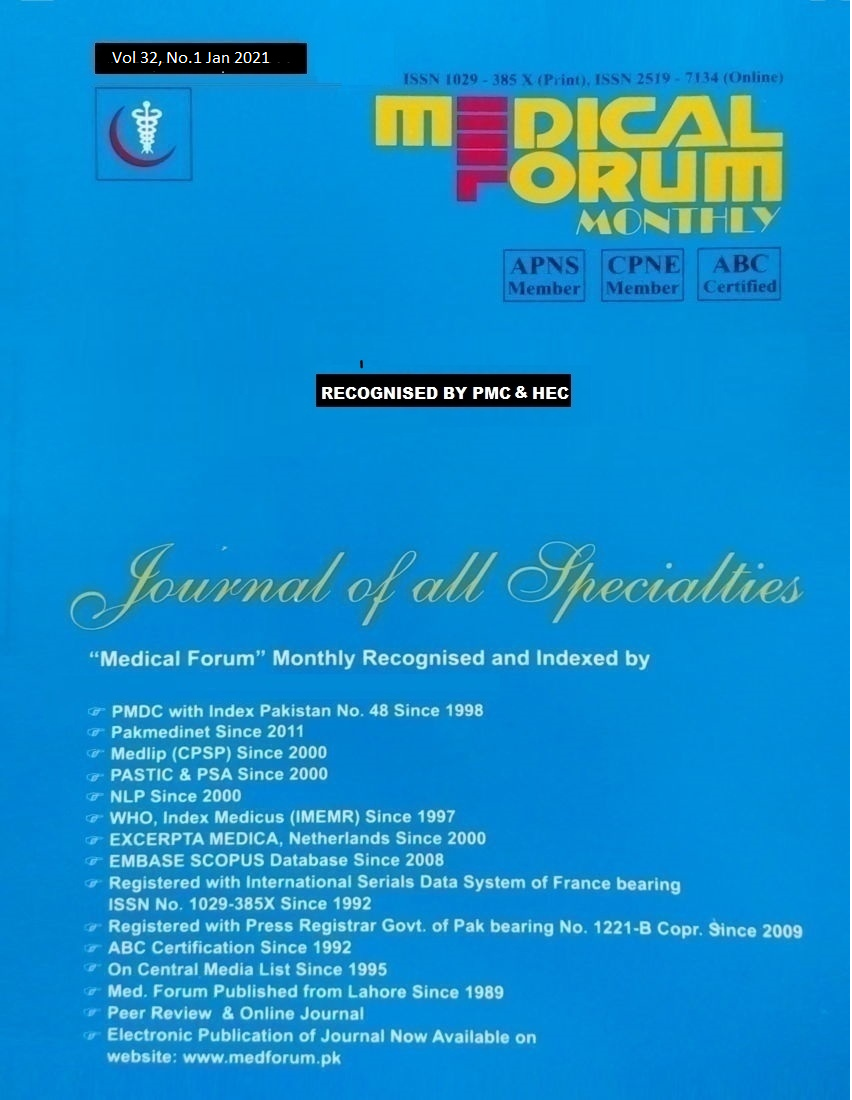
26. Restorative Effect of Thyroxine on Minocycline Induced Thyroid Gland Damage
|
|
Naheed Gohar1, Imran Ishaque2 and Sarah Sughra Asghar1 |
ABSTRACT
Objective: To evaluate the effects of thyroxine on minocycline induced thyroid gland in guinea pigs.
Study Design: Experimental study
Place and Duration of Study: This study was conducted at the anatomy of Basic Medical Sciences Institute (BMSI) of Jinnah Post Graduate Medical Center (JPMC), Karachi, from 1st October to 30th November 2015.
Materials and Methods: Thirty healthy, adult male guinea pigs weighing from 450-650 gram were selected. The animals were assigned to groups A, B & C, according to the experimental treatment. Group A was taken as control, group B received 0.02mg/g/day of Minocycline via nasogastric tube once daily, and group C was given same dose of Minocycline as in group B, with 0.5 µg/g/day thyroxine by same route, for the same duration. At end of study period, animals were sacrificed under ether anaesthesia. Blood samples were drawn from heart when animals were still breathing for levels of TSH and thyroid hormones. Thyroid gland was removed and processed. Tissue sections were stained with Mason Fontana stain to observe pigmentation in thyroid glands
Results: Serum TSH levels were raised in minocycline receiving group B when compared to control animals, whereas serum thyroid hormone levels were significantly reduced in group C where protection was provided with thyroxine. Marked pigmentation in thyroid tissue sections was observed in group B, although thyroxine had attenuated this effect in tissue sections from thyroid glands of Group C animals.
Conclusion: This study highlighted that minocycline caused thyroid gland damage, whereas thyroxine ameliorated this damage on thyroid gland.
Key Words: Minocycline, Thyroid gland, Thyroxine, Black pigmentation
Citation of article: Gohar N, Ishaque I, Asghar SS. Restorative Effect of Thyroxine on Minocycline Induced Thyroid Gland Damage. Med Forum 2021;32(1):106-110.
